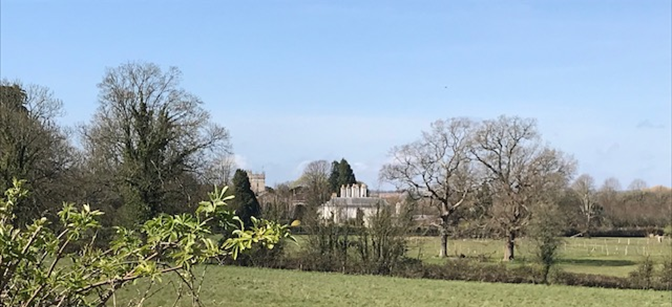
| Encourage new, and support existing, businesses and services in order to increase local job opportunities. This may include an increase in the number of shops and services and help improve social opportunities for villagers, and an increase in tourism opportunities based on the area’s unique history and character, but without harming the environment. |
6.1.1 Historically, Puddletown had a variety of economic activity, with employment related to Ilsington House, other domestic work, a forge, sawmill, coal yard, a small malthouse and a number of farms within or adjacent to the village. In the mid-C19 there were five public houses, seven shopkeepers, three blacksmiths and a combined saddler and harness maker.19
6.1.2 At the time of the last Census (2011), around half of the local population were in some form of full or part-time employment, but most (about 70%) commuted over 5km to work or travel for their job (ie outside of the parish). The data suggests that Dorchester (and to a much lesser extent, Weymouth and Blandford Forum) is the main place of work for about 40% of the working population, with a further 15% travelling on to places such as Portland and the Poole / Bournemouth conurbation, and just under 10% having no fixed place of work. About 20% of the working population were based at home, the remaining 10% working in local jobs (for example, in the Puddletown schools and surgery). Whilst data from the annual Business Register and Employment Survey is not available at a parish level, the data available at ward level would suggest that there are far fewer jobs than local employment opportunities (with about 1,240 working or actively seeking work according to the 2011 Census, and only about 500 jobs held by employees in the period 2015-2018). All of this would indicate that increasing employment opportunities locally would be a positive action to reduce commuting - however, this will only be achieved if businesses wish to locate here, and there are opportunities for them to do so.
6.1.3 The main employment sectors within the parish (based on the same data sources) would appear to be education, arts / entertainment / recreation services and retail. In addition to the community facilities (such as the village shop and local pub) there are a number of other small business premises in the village (the Antique Map and Book shop, and D H Autos repair unit being two examples). There are a number of small industrial units at Duck Farm, about 3km south-west of the village on Ilsington Road, as well as a number of self-catering holiday units. Contact was made with a number of these businesses to establish whether they were looking to expand, or indeed whether there were any other indications of an obvious shortfall in supply. Two local businesses were looking to relocate to larger premises (one had already identified a suitable premises elsewhere, the other was dependent on finding a unit at a suitable rent level). The workshop at Ilsington Farm was marketed as available to lease in July 2019, but at the time of drafting had not been re-occupied.
6.1.4 Landowners raised concerns about whether the provision of business units on their sites would be taken up. This may well relate to the lack of interest in the B1 business unit at The Moor, which was constructed and then marketed for approximately 2 years (2012-2014) before it was converted into dwellings due to the lack of interest at that time, and difficulties of accommodating some business types within or close to residential areas.
6.1.5 The adopted Local Plan does support opportunities for businesses to set up and expand:
6.1.6 There are similar criteria for small-scale built tourist accommodation (such as guesthouses and self-catering establishments). Proposals for live-work developments are also supported in locations considered suitable for residential development, and local support (as shown from the household survey) for small-scale, flexible business premises and home office working.
6.1.7 On this basis, no specific policies or site allocations for new employment workspace or additional visitor facilities have been included in this plan. However if a clear need is identified in the future that is not addressed through the overarching policies, this can be reviewed. A project has been included to promote tourism through raising awareness of the Thomas Hardy links to the area (and Tolpuddle Martyrs) – see section 2.5 – which will link with the following project.
Project P5. The Parish Council will work with local groups and organisations to develop and promote material, including maps, leaflets and web sites, to advertise the tourism opportunities, accommodation, local shops and businesses within Puddletown and the surrounding area.

19 Information taken from the 2007 Conservation Area Appraisal
< Previous | ^ Top | Next >